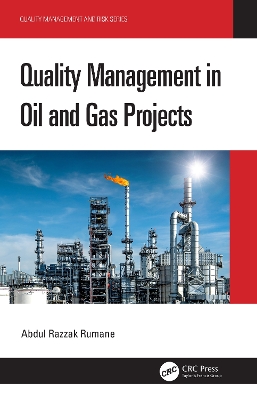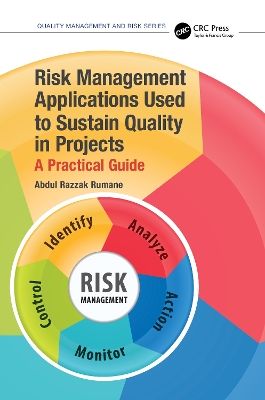Quality Management and Risk
2 total works
This book provides the tools and techniques, management principles, procedures, concepts, and methods to ensure the successful completion of an oil and gas project while also ensuring the proper design, procurement, and construction for making the project most qualitative, competitive, and economical for safer operational optimized performance.
It discusses quality during design, FEED, detailed engineering, selection of project teams, procurement procedure of EPC contract, managing quality during mobilization, procurement, execution, planning, scheduling, monitoring, control, quality, and testing to achieve the desired results for an oil and gas project.
This book provides all the related information to professional practitioners, designers, consultants, contractors, quality managers, project managers, construction managers, and academics/instructors involved in oil and gas projects and related industries.
Features
- Provides information on the various quality tools used to manage construction projects from inception to handover
- Discusses the life cycle phases, developed on systems engineering approach, and how it is divided into manageable activity/element/components segments to manage and control the project
- Includes a wide range of tools, techniques, principles, and procedures used to address quality management
- Covers quality management systems and development of quality management systems manuals
- Discusses quality and risk management, and health, safety, and environmental management during the design and construction process
Risk Management Applications Used to Sustain Quality in Projects
by Abdul Razzak Rumane
This practical guide covers the steps necessary to sustain quality in a project from start to finish. The book shows how to identify risks at different process, phases, stages and offers directions on how to mitigate and reduce risks using analysis, evaluation, and monitoring.
Risk Management Applications Used to Sustain Quality in Projects: A Practical Guide focuses on applying risk management principles to manage quality in all project management processes, stages, and phases. The book discusses the potential risks occurring at the different phases during the project lifecycle, its effects on projects, and how to prevent them. It explores all process elements and actives of risk management and provides steps on how to make the project more qualitative, competitive, and economical. Risk management processes are discussed at each project management processes and project lifecycle phases/stages to help the reader understand how various risks can occur and how to mitigate and reduce them.
The main audience for this book is Project Management Professionals, Quality Managers, Systems Engineers, Construction Managers, and Risk Management professionals as well as Industrial Engineers, academics, and students.

